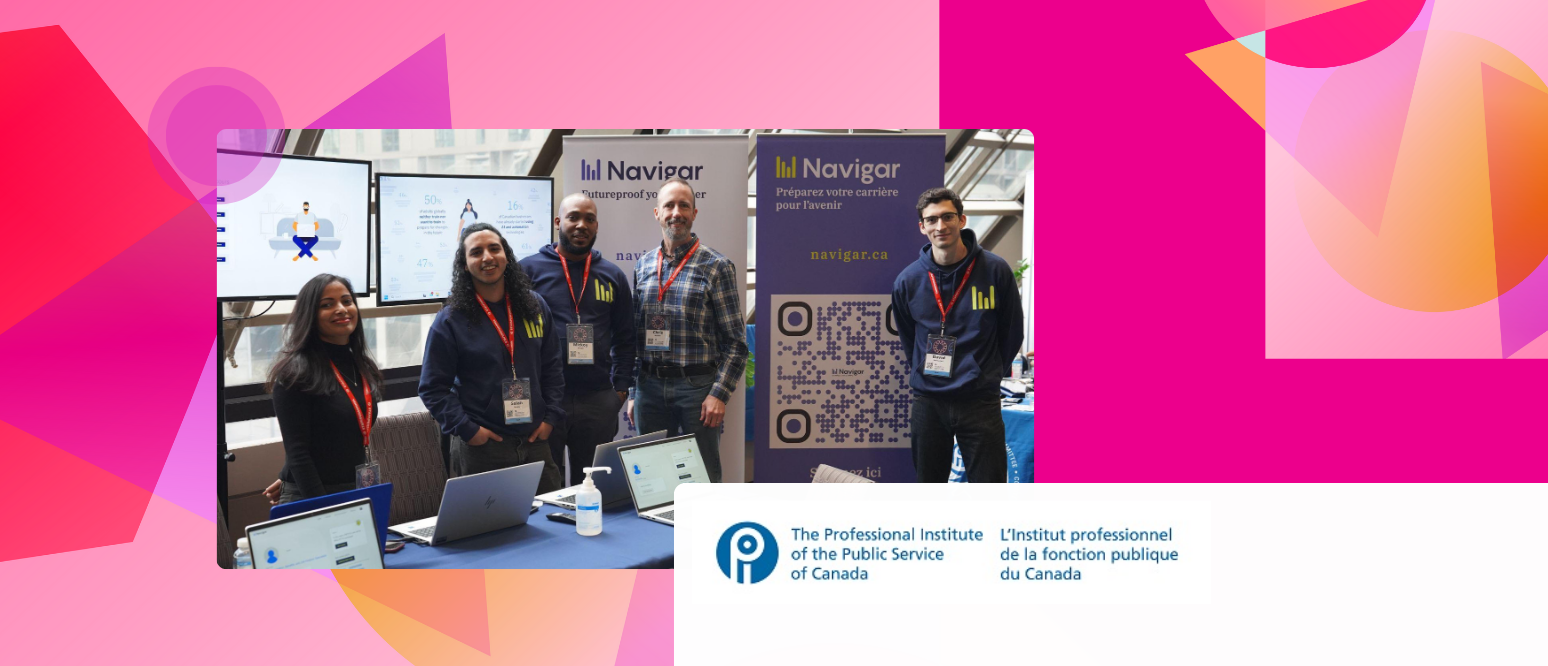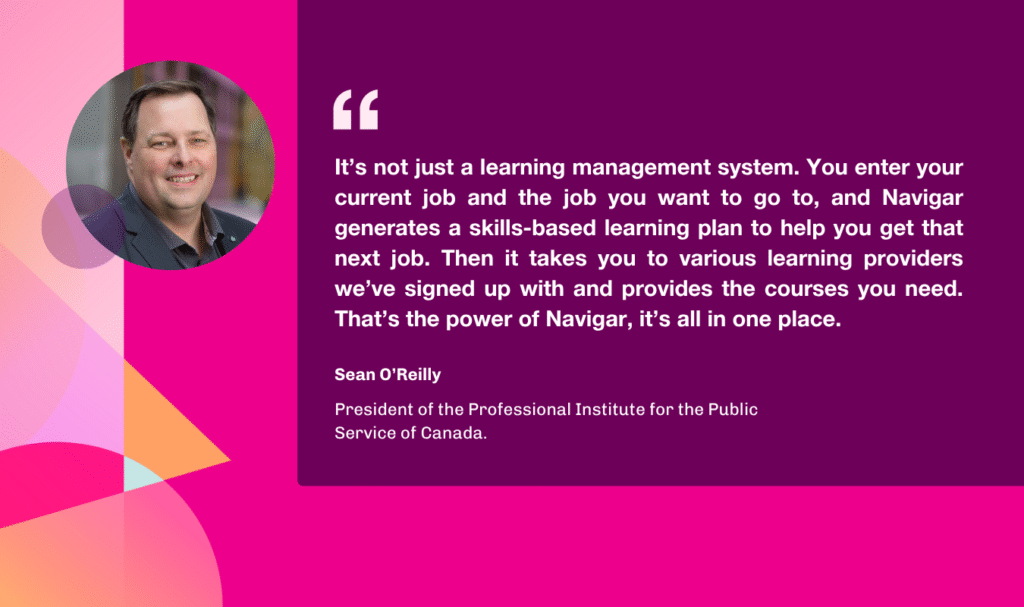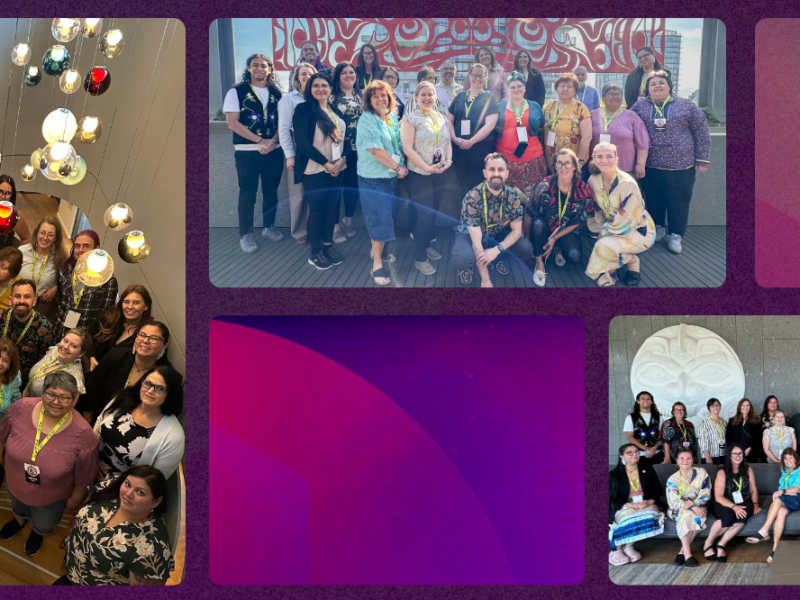Impact Story: Labour and Government Working Together to Upskill Government IT Specialists

Canada’s public service does not have a centralized training and skills development strategy at a time when the economy is in great flux and many workers need retraining and upskilling to keep up with new technologies.
With the support of the Future Skills Centre and Canada’s Treasury Board, the Professional Institute for the Public Service of Canada (PIPSC) has created Navigar, a Skills Learning Platform to support professional development for the union’s 75,000+ members. The tool allows users to quickly understand the skills they need to either upskill or reskill to advance to the next job and then allows them to access high-quality training programs to get there.
The program was first rolled out to IT professionals to leverage a training fund negotiated in their most recent Collective Agreement, and will be expanded to all workers represented by the union this year. Navigar ensures users have equal access to customized training for their individual career paths. It comes at a lower cost, as economies of scale are leveraged through bulk purchasing of training licenses.

Union President Sean O’Reilly laments that training is inconsistent across the federal public service. “Some departments are great,” he said. “They give you the training you need for your current job and also for your future job. But there are departments that are tighter than a quarter with training funds. We want to make sure we provide all our members with training opportunities.”
Challenge: Preparing government workers for future skills
Government agencies want to deliver effective digital programs and services for Canadians, but they are increasingly outsourcing work that requires skills emerging from AI and other technologies. Providing the current workforce with opportunities to upskill in new technologies and other skills is crucial to keep the work in-house and save on the cost of outsourcing.
“With the advent of AI and the changing landscape of jobs, we wanted to better prepare our members for the road ahead to better interact with AI, and how to counter the effects of AI in their jobs,” O’Reilly said. “It costs at least 25 per cent more for an outside consultant. If a public servant had those skills, they could do it much more efficiently.”
The Navigar platform was launched to the union’s Information Technology (IT) Group in October 2024. Users can quickly find out what skills they need and then be directed to resources to find them. “It’s not just a learning management system,” O’Reilly says. “You input your current job and the job you want to go to, and then Navigar generates a skills-based learning plan to help you get that next job. The Learning Plan is linked to various learning providers that we’ve signed up with, and actually gives you the course.”
Courses include specific job skills, but government workers can also access courses in language training, helping them achieve the bilingual status they need to advance in government in Canada.

Solution: An online tool to centralize digital training and skills development
Creating the innovative Navigar platform proved complex, and made for a longer than expected development cycle. The wait has been worth it. Navigar has become a one-stop-shop for all things related to the future of work. Members now have a better understanding of technology’s impact on jobs and are able to access vital training to prepare for a changing labour market.
Unions have always played a role in training, but more typically in the trades. O’Reilly believes working with the government to provide training for professional workers is an essential role for labour as the labour market evolves faster than before.
“Providing training through the unions as professionals might be a little bit different for us, but it’s so important to help our members in any way we can. They pay dues, this is the kind of service they should expect to make their working life better.”
More than half the professionals who used it said Navigar equipped them with the information they needed to transform their career and time spent searching for information was cut in half.
Policymakers should consider the potential of tools like Navigar to bring employers, unions and workers together to address the changing needs of the labour market.
The views, thoughts and opinions expressed here are the author’s own and do not necessarily reflect the viewpoint, official policy or position of the Future Skills Centre or any of its staff members or consortium partners.




